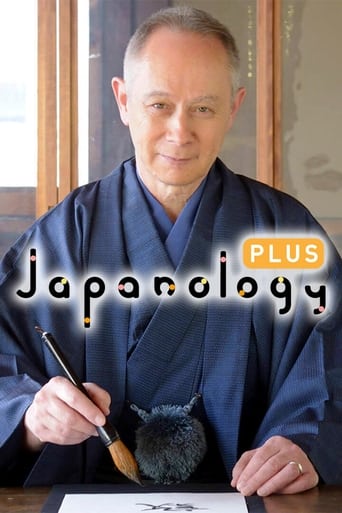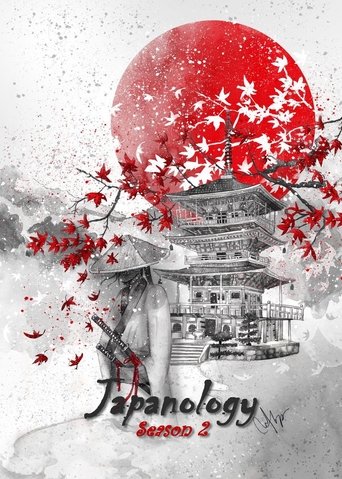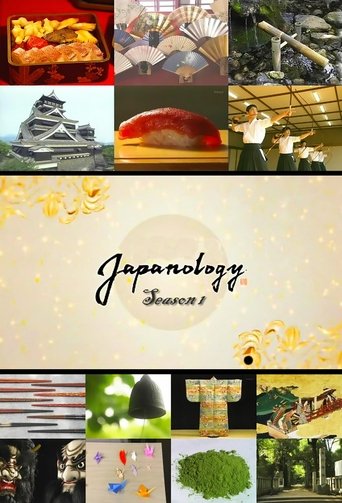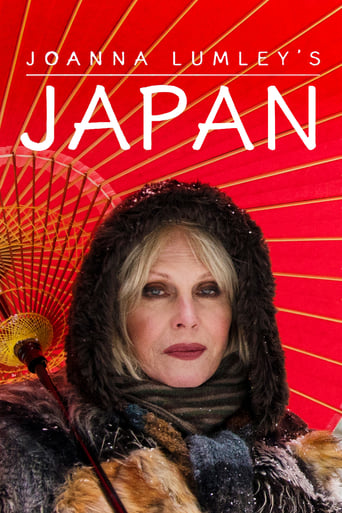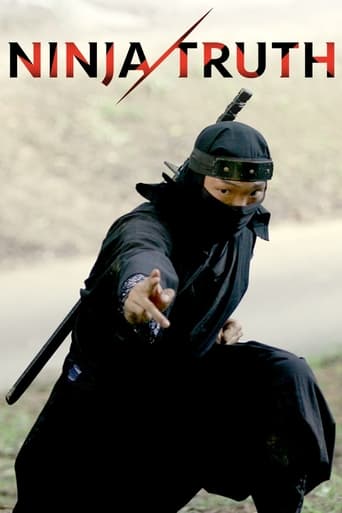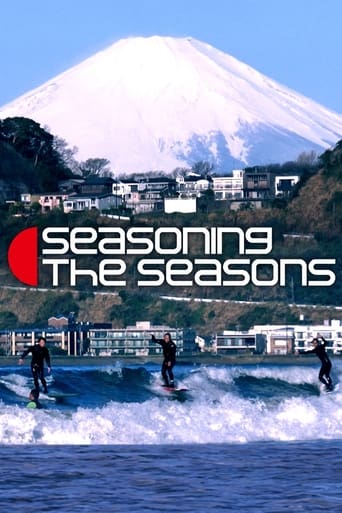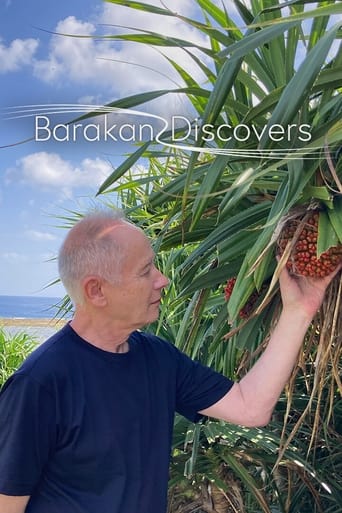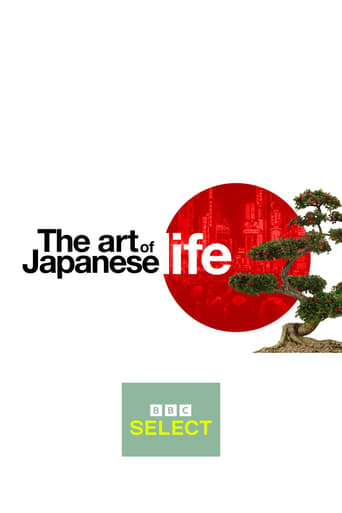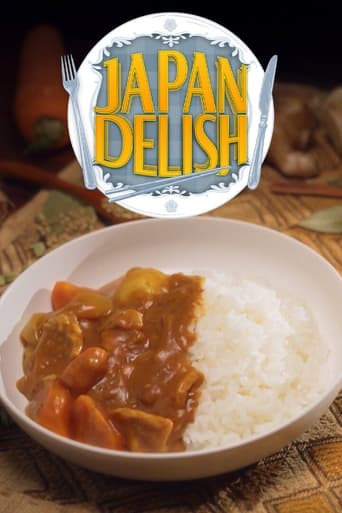Japanology Plus Season 1
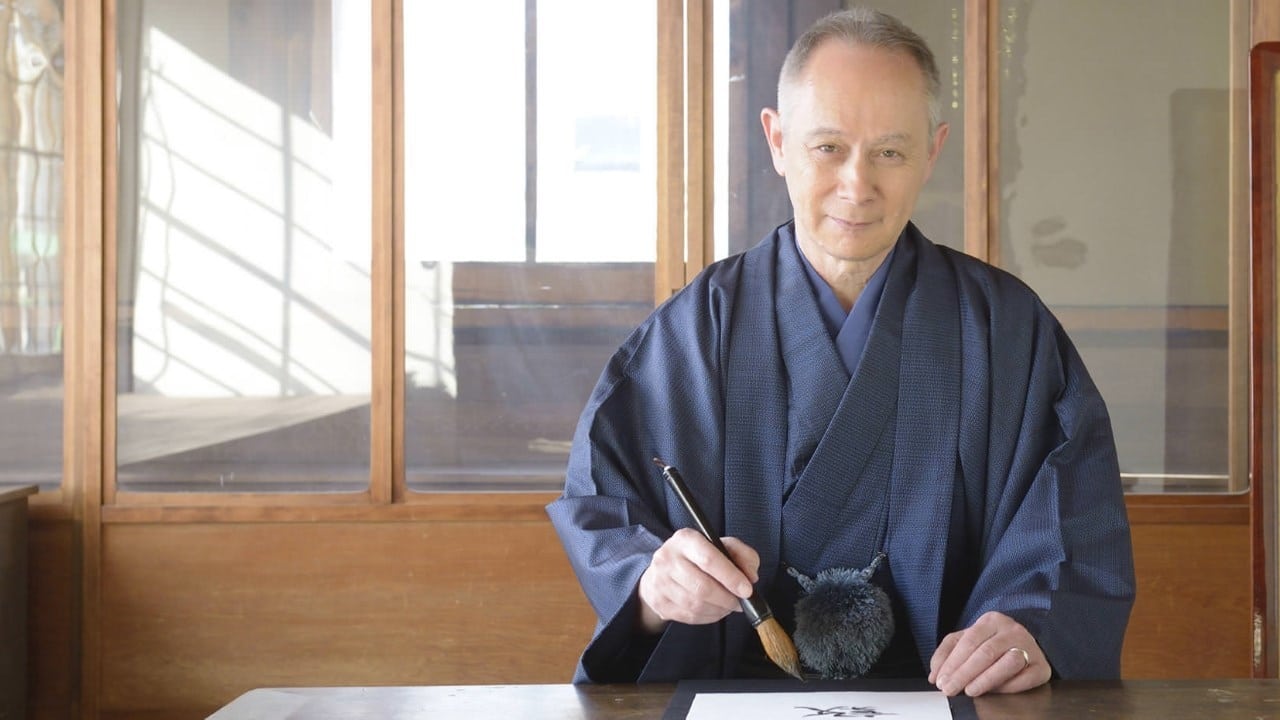
Host Peter Barakan delves into various aspects of Japanese culture; exploring practices, history, and modern innovations in such areas as ramen, rice, sushi, geisha, bonsai, and so much more. Local experts discuss their passions at fascinating length, and American Japanophile Matt Alt experiences the food, practices, and cultures in each episode in depth. Viewers will finish each half hour episode with a new understanding of an area of Japanese life through demonstrative videos and explanations, all delivered respectfully and true to the Japanese way of life.
Watch NowWith 30 Day Free Trial!
Japanology Plus
2014 / NR
Host Peter Barakan delves into various aspects of Japanese culture; exploring practices, history, and modern innovations in such areas as ramen, rice, sushi, geisha, bonsai, and so much more. Local experts discuss their passions at fascinating length, and American Japanophile Matt Alt experiences the food, practices, and cultures in each episode in depth. Viewers will finish each half hour episode with a new understanding of an area of Japanese life through demonstrative videos and explanations, all delivered respectfully and true to the Japanese way of life.
Watch Trailer
With 30 Day Free Trial!
Japanology Plus Season 1 Full Episode Guide
A private banquet in the company of geisha is considered the ultimate in elegant hospitality. A common misconception is that geisha are courtesans; in reality, they are skilled practitioners of traditional performing arts. At one time, there were 80,000 of them working in Japan, but only about 1,000 remain today. Our expert guest Kenji Watanabe, a scholar of early modern Japanese literature, will guide us into the real world of geisha. And in Plus One, playing party games with geisha!
Sushi is basically vinegared rice topped with something else—usually seafood. Simple ingredients, but proper preparation demands the delicate skill of a trained chef. Sushi originally came to Japan from Southeast Asia about 2,000 years ago, and in recent years, it's become a popular cuisine around the world. On this edition of Japanology Plus, our theme is sushi. Our expert guest is Terutoshi Hibino, the chief advisor to Japan's first sushi museum. And in Plus One, making your own sushi!
With just one plant in one pot, you can create your own personal vision of nature. This is bonsai. Although in Japan it's often regarded as a hobby for old men, bonsai's popularity is growing among younger people and women. On this edition of Japanology Plus, our theme is bonsai. We'll see how these living works of art capture a Japanese view of nature. Our expert guest is Minoru Akiyama, a young star in the world of bonsai growing. And in Plus One, bonsai...with action figures?
Sports days are all-day athletic meets held annually at schools in Japan—pretty much every Japanese person has taken part in one. Students compete in all sorts of team-based physical challenges; they are also heavily involved in planning and managing the event. Sports days are a proven way to build camaraderie and forge friendships. This time, our theme is sports days. Our expert guest is Miho Shinoda, a gymnastics instructor and former Olympian. And in Plus One, sports days for grown-ups!
Japan is a robotics superpower. There are approximately 300,000 industrial robots at work in Japan—that's more than any other country, and a quarter of the world total. Japan is also known for its cutting-edge humanoid robots, many of them featuring endearing designs reminiscent of anime characters. On this edition of Japanology Plus, our theme is robots. Our expert guest is Tomotaka Takahashi, a professor and renowned robot creator. And in Plus One, some amazing androids.
Whether it's learning about a traditional custom, or a newly popular sport, people in Japan love to take lessons and develop a skill. It's estimated that there are 86,000 such classes being offered in Japan right now. Courses held before or after the workday are in particularly high demand. This time on Japanology Plus, our theme is Lessons for Life. Our expert guest is Sachiko Yamaguchi, a freelance writer who reports on various classes. And in Plus One, a diorama-making lesson.
The Shinkansen is Japan's bullet train system. Since it debuted 50 years ago as the world's fastest train service, its speed, safety and on-time performance have enabled it to carry more than 6 billion passengers. Today, we explore the secrets behind the Shinkansen, the world's ultimate railway system. Our expert guest is Yoshihiro Akiyama, an engineer who helped design Shinkansen lines in many parts of Japan. And in Plus One, the world's fastest train cleaning crew.
Yokai: the collective name for all sorts of bizarre creatures and supernatural phenomena in Japanese folklore. They have a very long history in Japan, and these days they often feature in video games, anime, manga and many other contexts. Yokai culture, with its huge variety of uncanny creatures, offers a window on the Japanese mind. Our expert guest this time is Kazuhiko Komatsu, perhaps the world's leading authority on yokai. And in Plus One, visiting yokai relics.
Japanese Buddhist statues come in countless shapes and forms, and they are not just objects of prayer but also meticulously crafted works of art in their own right. When Buddhism reached Japan in the mid-6th century, religious statuary came with it, and in thickly forested Japan, the statues began to be made mostly in wood. This time on Japanology Plus, we explore the deep appeal of Buddhist statues with our expert guest Yasumi Miyazawa. And in Plus One, keeping the Buddhas in your own home.
Origami, the traditional Japanese art of creating objects by folding paper. It's a classic pastime that everyone in Japan has done at some point, and with roots in religious rituals and social etiquette, it expresses many facets of Japanese culture. Origami techniques have even been used in space! This time on Japanology Plus, our theme is origami. Our expert guest is Kazuo Kobayashi, the head of the Origami Center in Tokyo. And in Plus One, fun folding you can do at any Japanese pub.
This time on Japanology Plus, our theme is Japanese gardens, compact evocations of nature's majesty. Japan has many garden styles: from tea gardens, to the dry gardens of Zen Buddhism, to the pocket gardens of city-dwellers. Our expert guest is Takahiro Naka, a professor of garden history who is actively involved in garden design and restoration projects around the country. And in Plus One, a Japanese rock garden that fits on your tabletop.
Festivals are held in every region of Japan throughout the year. The oldest date back well over a millennium, and typically feature prayers for good harvests or peace and stability. These days, festivals in Japan have become vital to many areas as a magnet for visitors. On this edition of Japanology Plus, our theme is festivals. Our expert guest is Tetsuya Yamamoto, who visits dozens of festivals a year and publishes articles and essays about them. And in Plus One, how a portable shrine is made.
Tokyo's Tsukiji Market is the world's largest fish market - hundreds of kinds of seafood from around the world are sold there. 40,000 people work at Tsukiji each day, and hordes of foreign tourists come to check out the vast, buzzing hive of activity. This time on Japanology Plus, we explore the customs and commerce of Tsukiji Market. Our guest is Masataka Fujiwara, a seafood expert who's been visiting Tsukiji regularly for more than 30 years. And in Plus One, Tsukiji etiquette for visitors.
Japan's taiko drums—made in many shapes and sizes, played at various occasions—are an ancient heritage. Originally taiko were an integral part of festivals and rituals, used to summon the gods. In recent years, taiko drumming has been admired as a form of music in its own right. Our guest this time is Hitoshi Mogi, a taiko expert at the National Theatre who has exhaustive knowledge of Japanese drumming traditions. And in Plus One, getting in shape with taiko!
Through the ages, bamboo has been profoundly important to Japan's industry, culture and everyday life. But why does bamboo grow so quick, and when does it flower? A great deal about these familiar plants is not yet fully understood. This time on Japanology Plus, we'll explore bamboo's mysterious life cycle and see just how precious it is to the people of Japan. Our expert guest is Shozo Shibata, a professor of bamboo ecology at Kyoto University. And in Plus One, traditional bamboo toys!
Bento are portable boxes of food, typically composed of rice, protein-rich main dishes, and vegetables on the side. They've evolved from a purely practical means of sustenance into a fun way to eat - these days, there's even a fad for bento with cute characters drawn using the food. This time on Japanology Plus, our theme is bento. Our guest is Ayao Okumura, one of the leading experts on Japan's culinary culture.
Microphone in hand, tens of millions of people in Japan belt out songs in private party rooms known as karaoke boxes. These intimate spaces are great places for friends to build camaraderie... although solo boxes are also gaining popularity. We'll see how the karaoke box has become a part of Japanese life. Our expert guest this time is Kyoko Koizumi, a sociologist with a particular interest in how people interact with music.
This time, we present an installment of our special talk-show series Japanophiles, which features lively interviews with foreigners living in Japan. Carolin Eckhardt is a young German manga artist. Her debut comic, about a cross-cultural marriage between a German woman and Japanese man, became a hit on a manga website, earning her a book deal. Amid the cutthroat competition of the manga world, Eckhardt is taking her first steps as a pro. We learn about her passion and determination.
This time, we present another of our special talk-show series Japanophiles, which features lively interviews with foreigners living in Japan. The photographic artist Everett Kennedy Brown uses the old-fashioned wet-plate technique to create unique works of art presenting Japanese culture and landscape. Living the agrarian life, Brown has recently been working on a new theme: traditional artisans and their crafts. Today, we discover how Brown is sharing Japan's beauty with the world.
This time, we present an installment of our special talk-show series Japanophiles, which features lively interviews with foreigners living in Japan. Elizabeth Suzuki, originally from Switzerland, has been practicing kamikiri—the Japanese art of paper cutting—for 27 years. She performs around Japan and in other countries at all kinds of events, delighting crowds with her warm, witty banter, deft scissor skills and innovative creations that incorporate Western motifs.
Japan's castles are masterworks of wood and stone. They bristled with defences and functioned as symbols of authority. Today they are cherished local landmarks and popular tourist spots. With their architectural elegance and ingenious fortification, castles have long played a prominent role in Japan. Our expert guest this time is Yoshihiro Senda, the president of Nara University and an archaeologist who specializes in castles.
From sushi to sake, rice is an absolutely essential part of Japanese cuisine. Appliance makers offer state-of-the-art rice cookers with elaborate functions, while a "rice-cooking wizard" keeps on making rice the time-honored way. Our expert guest this time is Mitsuo Ishizuka, a 10th-generation rice farmer in Niigata (Japan's "rice basket") who works hard to promote awareness about Japanese agriculture.
Under cover of darkness, moving by stealth, ninja used superb physical skill and special equipment to infiltrate and disrupt their enemies. Ninja appeared during Japan's age of regional conflict, and their origins seem to lie in small communities that were clustered in the mountainous regions of Iga and Koka. Our expert guest this time is Hiroshi Ikeda, who has spent the last 25 years tracking down information about ninja.
Wagashi, Japan's traditional sweets. Each colorful, exquisite morsel contains a clear sense of the season - wagashi are an essential part of various annual events. This time, we'll sample the freshest modern flavors, and the 1,000-year history, of wagashi. Our expert guest is Tsugio Itami, an acclaimed Japanese confectioner who has been officially designated a "contemporary master craftsman".
Akihabara, with its mix of gadgets and geekdom, is a one-of-a-kind experience. Shops selling everything electronic from appliances to cutting-edge robots crowd its streets. Japan's famous video game and anime subcultures are another big part of Akihabara. And in recent years, numerous pop idols have launched their careers here. Our expert guest this time is Kenichiro Senoo, a professor with a deep affection for Akihabara who researches and promotes the district.
Springtime in Japan means cherry trees in bloom. Cherry blossoms flower gloriously, but briefly, then their petals fall like confetti on the spring breeze. This yearly occurrence strikes a deep chord in the Japanese soul. Our expert guest this time is Toemon Sano, who goes by the title of "protector of the cherry blossoms", and whose family owns and maintains a forest with over 150 varieties of cherry tree.
Maneuver your pieces to capture the opponent's king - that's the essence of shogi, Japan's most popular board game. Descended from the same ancient Indian game as chess, shogi dates back more than 400 years, and has been a widely enjoyed pastime for centuries. These days about 12 million people play shogi, and the internet has opened up new ways to enjoy the game. Our expert guest this time is Masahiko Urano, a professional shogi player.
Mt. Fuji is Japan's tallest peak. Its beauty changes from season to season, from day to day. Frequently featured in ukiyo-e woodblock prints and other artworks, Mt. Fuji is also a place of worship, and home to a deity. The gentle slopes of the mountain attract 300,000 climbers each year. This time on Japanology Plus, we'll explore Mt. Fuji with our expert guest Hiroshi Tashiro, who has been researching the mountain with passion for decades.
Ramen is one of Japan's favorite foods. Broth, noodles and toppings are the 3 elements, but within that basic framework there is almost endless variation. An annual gathering in Tokyo of the best ramen shops from around Japan draws hundreds of thousands, and now the popularity of ramen is going global. Our expert guest this time is Hiroshi Osaki, the director of the Nippon Ramen Association, and the man who eats more ramen than anyone else in Japan. And in Plus One, the basics of slurping!
Japanese public bathhouses, also called sento. From the outside, some of them look like Shinto shrines or Buddhist temples. Inside, they have many features that help to create a space for retreat and relaxation. More than just a place to wash the body, bathhouses have long served as a social forum for the local community. This time on Japanology Plus, we'll explore the wonderful world of bathhouses with our guest Machida Shinobu, a sento expert. In Plus One: bathhouse etiquettes for beginners.
Free Trial Channels
Seasons


